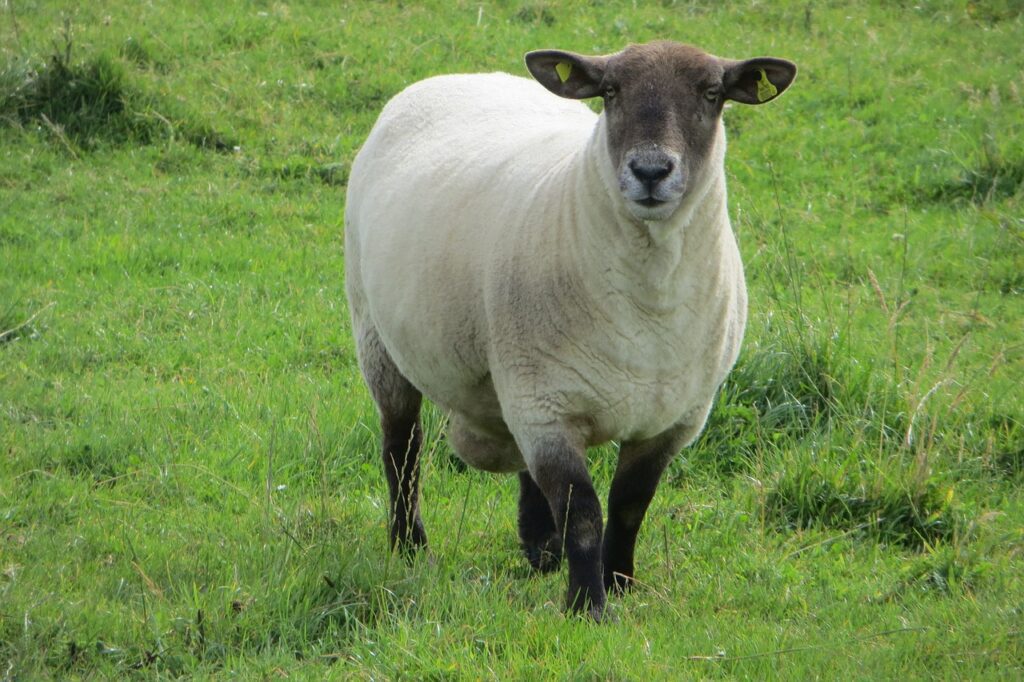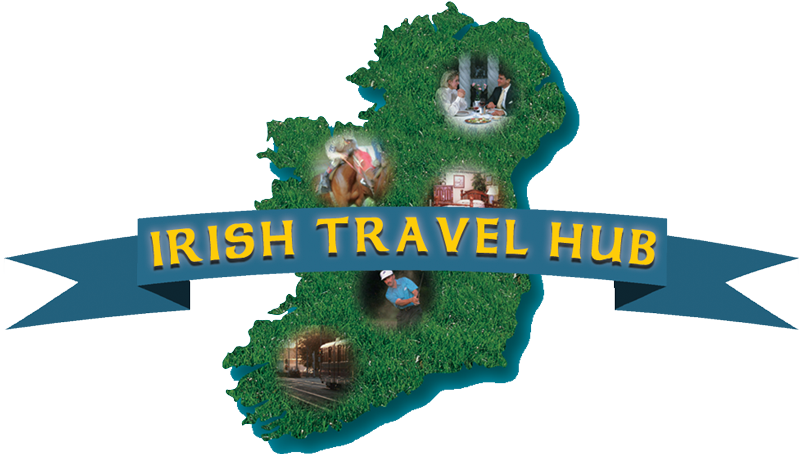Travel Tips & Facts for Ireland


Some handy information for your Ireland trip…
GENERAL INFORMATION
- Ireland’s currency is the Euro.
- The country has a temperate maritime climate with mild winters and cool summers.
- Irish people are known for their friendliness and hospitality.
- St. Patrick’s Day is a national holiday celebrated on March 17th.
- Popular tourist destinations include Dublin, the Cliffs of Moher, and the Ring of Kerry.
- The countryside is dotted with castles, ancient ruins, and historic sites.
- Ireland is famous for its music, dance, and literature.
- The local cuisine features hearty dishes such as Irish stew, colcannon, and boxty.
- Guinness, a dry Irish stout, is a popular drink in Ireland.
- If you plan to rent a car, drive on the left side of the road.
- Most attractions, restaurants, and shops accept credit cards.
- Tipping is customary in restaurants and for taxi or tour guides.
- The country has a rich history, including the Norman invasion, the Irish War of Independence, and the Troubles in Northern Ireland.
- The official languages are Irish and English.
LOCAL CUSTOMS AND TRADITIONS
- Greeting: Handshakes and greetings are common, “Hello” or “Hi” is a polite form of greeting.
- Dress code: Dress is generally casual, but smart casual is expected in restaurants and bars.
- Food & drink: It is customary to tip 10-15% in restaurants.
- Timekeeping: Punctuality is valued, it’s considered rude to be late.
- Social etiquette: Queuing is expected and considered polite.
- Gift giving: Gift giving is not expected for social events.
- Public behavior: Public displays of affection are accepted.
- Language: English is widely spoken, but it’s respectful to learn a few phrases in Irish (Gaelic).
ELECTRICITY
In Ireland, the standard voltage is 230 V and the frequency is 50 Hz. The type of power socket used is Type G, which has three rectangular pins. It’s recommended to check if your devices are compatible with the voltage and to bring a travel adapter if necessary.
EMERGENCY NUMBERS
- Emergency Services: 112 or 999
- Fire Department: 999 or 112
- Police: 999 or 112
- Coast Guard: 999 or 112
- Mountain Rescue: 112
In an emergency, call the appropriate number and provide your location and the nature of the emergency. Speak clearly and calmly. The operator will assist you and dispatch the necessary services.
CURRENCY
The currency in Ireland is the Euro (EUR). It’s a good idea to exchange some currency before arriving or withdraw from an ATM upon arrival. Major credit cards are widely accepted.
PETS
- Pet Passport: A pet passport or third-country veterinary certificate is required for travel to Ireland with a pet.
- Rabies Vaccination: Pets must be vaccinated against rabies and have a current certificate.
- Microchip: Pets must be microchipped for identification.
- Tapeworm Treatment: Dogs must be treated for tapeworm 24-120 hours before arriving in Ireland.
- Quarantine: Quarantine is not required for pets entering Ireland.
- Health Certificate: A health certificate issued by a vet is required for travel.
- Carrier Requirements: Pets must be transported in an approved carrier.
- Airline Regulations: Check with your airline for their specific regulations regarding pet travel.
It’s important to check with the Irish Department of Agriculture, Food and the Marine for the most up-to-date information and regulations regarding pet travel to Ireland.
DRIVING
- Drive on the left side of the road.
- Seat belts are mandatory for all passengers.
- Speed limits are indicated in kilometers per hour (km/h).
- Don’t use a mobile phone while driving.
- Drink driving laws are strict, limit alcohol consumption before driving.
- Roundabouts are common, give way to traffic on your right.
- Use of headlights is required during the day in poor visibility.
- Have valid driver’s license and car insurance.
- Familiarize yourself with road signs and road rules.
- Be mindful of narrow roads and sudden stops, especially in rural areas.
EMBASSIES
- US Embassy Dublin: 42 Elgin Road, Ballsbridge, Dublin 4, Ireland
- UK Embassy Dublin: Merrion Road, Ballsbridge, Dublin 4, D04CK99, Ireland
- Canadian Embassy Dublin: 2nd Floor, 80 St Stephen’s Green, Dublin 2, Ireland
- Australian Embassy Dublin: 7-8 Wilton Park, Dublin 2, Ireland
- New Zealand Embassy Dublin: 2nd Floor, 80 St Stephen’s Green, Dublin 2, Ireland
These are some of the major embassies located in Ireland. It’s advisable to check the embassy website for the most up-to-date information, including their services and contact details.
POPULATION
Ireland has a relatively small population compared to other European countries, with a population density of approximately 70 people per square kilometer. The majority of the population lives in urban areas, particularly in the capital city of Dublin, which has a population of over 1 million people. Other major cities include Cork, Limerick, and Galway.
Ireland has a young and diverse population, with a significant proportion of people aged under 30. The country has a high birth rate and a low death rate, contributing to its steady population growth. In recent years, Ireland has also become a popular destination for immigration, particularly from other European countries, which has further contributed to its diverse and growing population.
As of 2021, the population of Ireland is approximately 4.9 million people.
PUBLIC HOLIDAYS
- New Year’s Day: January 1st
- St. Patrick’s Day: March 17th
- Easter Monday: Date varies
- May Day Bank Holiday: First Monday in May
- June Bank Holiday: First Monday in June
- August Bank Holiday: First Monday in August
- October Bank Holiday: Last Monday in October
- Christmas Day: December 25th
- St. Stephen’s Day: December 26th
These are the public holidays observed in Ireland. It’s important to note that some businesses and services may have reduced hours or be closed on these days. Some local festivals and events may also be held, particularly on St. Patrick’s Day which is a national holiday and widely celebrated.
TELEPHONE
- International code for Ireland: +353
- National code for Ireland: 0
When calling a number within Ireland, dial the national code (0) followed by the local number. When calling from outside Ireland, dial the international code (+353) followed by the local number, excluding the initial 0.
For example, to call a number in Dublin with a local number of 123 4567 from outside Ireland, you would dial +353 1 123 4567. To call the same number from within Ireland, you would dial 01 123 4567.
TIPPING
Tipping in Ireland is discretionary, but generally appreciated. The amount and frequency of tipping can vary depending on the type of service and personal preference.
- Restaurants: 10-15% is common for good service.
- Bars: Round up to the nearest euro for drinks.
- Taxi/cab drivers: Round up to the nearest euro or add 10% for good service.
- Hotel staff: A few euros per night for housekeeping, and €1-2 for porters.
- Tour guides: €5-10 per person for a full-day tour.
Tipping is not expected in all service industries, but it is always appreciated for good service. The custom of tipping may vary among different regions, so it’s always good to observe what others are doing and follow suit.
WEATHER
The weather in Ireland can be described as temperate and changeable, with moderate rainfall throughout the year. The warm Gulf Stream currents influence the weather, making it relatively mild compared to other countries at the same latitude.
- Summer (June-August): Average temperatures range from 15°C to 20°C, with occasional warm spells and some rain.
- Autumn (September-November): Temperatures begin to drop, with average temperatures ranging from 10°C to 15°C and increasing rainfall.
- Winter (December-February): Average temperatures range from 5°C to 10°C, with cold spells and the possibility of snow in some areas.
- Spring (March-May): Temperatures begin to rise, with average temperatures ranging from 10°C to 15°C and increasing sunshine.
It’s important to be prepared for sudden changes in weather, as the conditions can change quickly in Ireland. Pack a range of clothing, including waterproof gear, as rain is common throughout the year.
